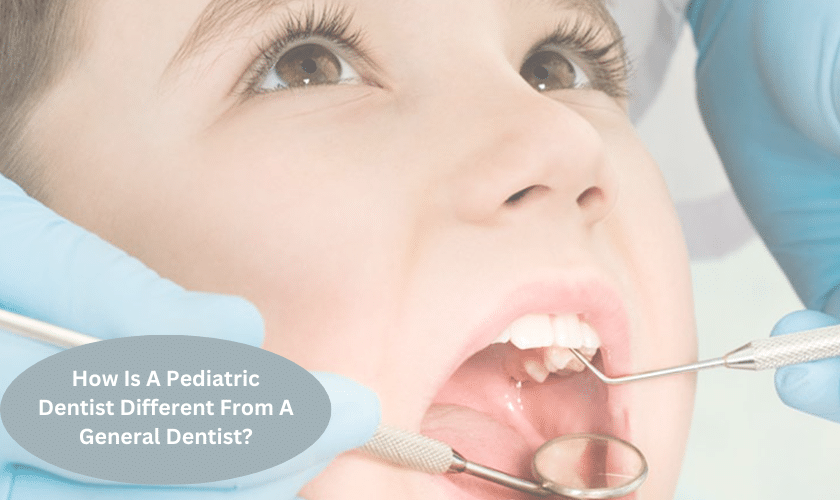Do you know the difference between Pediatric Dentists and General Dentists? Pediatric dentistry is a specialized form of dental care for children. Pediatric dentists are specially trained to care for children’s teeth, gums and mouths. These professionals understand the unique needs of growing kids well beyond what general dentistry covers. Read on to learn more about the important differences between Pediatric Dentist and General Dentist.
Qualifications & Training
The qualifications and training required of Pediatric Dentists differ from that of General Dentist in several ways. Pediatric Dentists must complete a two to three-year residency program after their general dentistry program. Pediatric Dentists are trained to treat patients from infancy through adolescence, and they have special knowledge of the growth and development of the oral cavity. Pediatric Dentists also understand how physical, emotional, social and psychological changes in children can impact dental health.
General Dentists receive less specialized training on treating children’s teeth specifically. They may provide routine dental care such as cleanings and fillings for children, but they are more likely to refer pediatric patients to Pediatric Dentists for more complex treatments or procedures that require additional skills or equipment.
Treatment Approach
The approach Pediatric Dentist take when treating kids is different from that of General Dentists. Pediatric Dentists are specially trained to care for children in a manner that meets the needs of their young patients. Pediatric Dentists have access to specialized equipment designed to make dental treatments and procedures more comfortable for children, as well as educational materials that help kids stay informed throughout their visits. Pediatric Dentists also use a variety of methods such as games, music, and storytelling to keep kids calm during their appointments.
General dentistry is focused on the maintenance of adult teeth and providing preventive education. Treatments provided by general dentists may be too advanced or time consuming for younger patients. Pediatric Dentists can provide more effective and efficient treatment plans tailored specifically to children’s needs and abilities.
FAQs
Q1: How do Pediatric Dentists differ from General Dentists?
A1: Pediatric Dentists have completed a two to three-year residency program after finishing their general dentistry program. Pediatric Dentist are specially trained to treat patients from infancy through adolescence, and they understand how physical, emotional, social and psychological changes in children can impact dental health. Pediatric Dentists use specialized techniques and equipment designed for children, such as games, music, and storytelling to keep kids calm during their appointments.
Q2: What kind of treatments can Pediatric Dentists provide?
A2: Pediatric Dentist can provide preventive care such as cleanings and exams as well as fillings, crowns, extractions and more complex treatments like orthodontics or sedation dentistry. Pediatric Dentists are also trained in providing counseling on nutrition and diet that can impact oral health.
Q3: At what age should my child see a Pediatric Dentist?
A3: The American Academy of Pediatric Dentistry (AAPD) recommends that children should have their first dental visit by age 1 or within 6 months of the eruption of the first primary tooth. Pediatric Dentists can provide preventive care, early diagnosis and treatments for children to help promote a lifetime of healthy smiles.
Conclusion
Pediatric Dentists and General Dentists both play important roles in promoting children’s oral health. Pediatric dentistry is specialized to meet the unique needs of developing children, while general dentistry helps adults maintain their oral health. Parents should be aware of these differences when selecting a dentist for their kids.
